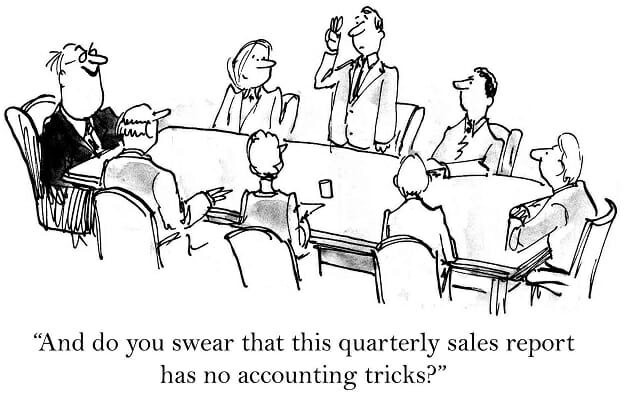Accounting Ethics
Code of professional conduct
What is Accounting Ethics?
Accounting ethics is an important topic because, as accountants, we are the key personnel who access the financial information of individuals and entities. Such power also involves the potential and possibilities for abuse of information or manipulation of numbers to enhance company perceptions or enforce earnings management. Ethics is also absolutely required in the course of an audit. Without meeting the requirements of auditing and accounting ethics, an audit must instantly be paused.

Ethics and the Code of the Conduct
Ethics and ethical behavior refer more to general principles such as honesty, integrity, and morals. The code of professional conduct, however, is a specific set of rules set by the governing bodies of certified public accountants. Although the rules set out by different bodies around the world are unique, some rules are universal. Let’s take a closer look at some of these important rules.
Rules and Guidance
One of the key rules set out by professional accounting bodies in North America is the idea of independence. This is the idea that, as an auditor, you must be totally objective and must be without ties to or relationships with the client since that could potentially impair your judgment and impair the overall course of the audit work.
There are two forms of independence:
- Independent in fact
- Independent in appearance
Independence in fact refers to any factual information such as whether you, as an auditor, own any shares or other investments in the client firm. These facts are usually easy to determine.
Independence in appearance, however, is more subjective. Let’s say, for example, that as an auditor you were invited to a year-end party at the client firm. The party turns out to be extremely luxurious and you also receive a nice watch as a gift. In appearance, would the auditor, who was invited to the party and who also received a gift, be able to maintain independence in the audit? In order to solve a potential conflict of interest, a reasonable observer’s test is used – i.e., what would a reasonable observer say about the situation?
Threats to Independence
There are always threats and situations that can reduce the level of independence. Let’s take a look at some of these threats:
- Familiarity Threat: If the auditor has a long relationship with the client or they are close friends/relatives
- Intimidation Threat: If the auditor changes the financial statements, the client threatens to switch auditors
- Self-Interest Threat: If the auditor has a direct financial interest through shares or a large fee outstanding from the client
- Self-Review Threat: If the auditor performs both audit and bookkeeping services, it is a review of the auditor’s own work
Other Important Rules
Some other rules outlined by professional accounting bodies include the following:
- Contingent fees are not allowed – For example, audit fees that are based on a percentage of the net income figure or a percentage of a bank loan received
- Integrity and due care – Audit work must be done thoroughly, diligently, and in a timely manner.
- Professional competence – Auditors must be competent, which means he/she must have both the necessary academic knowledge and experience in the relevant industry.
- Duty to report a breach of rules – This rule is commonly referred to as the whistleblower rule. If a CPA observes a fellow CPA violating any of these rules, he/she has a responsibility to report it.
- Confidentiality – Auditors must not disclose any information regarding the client to outsiders.
Related Resources
Thank you for reading CFI’s explanation of Accounting Ethics. To keep advancing your career, the additional resources below will be useful:
Analyst Certification FMVA® Program
Below is a break down of subject weightings in the FMVA® financial analyst program. As you can see there is a heavy focus on financial modeling, finance, Excel, business valuation, budgeting/forecasting, PowerPoint presentations, accounting and business strategy.
A well rounded financial analyst possesses all of the above skills!
Additional Questions & Answers
CFI is the global institution behind the financial modeling and valuation analyst FMVA® Designation. CFI is on a mission to enable anyone to be a great financial analyst and have a great career path. In order to help you advance your career, CFI has compiled many resources to assist you along the path.
In order to become a great financial analyst, here are some more questions and answers for you to discover:
- What is Financial Modeling?
- How Do You Build a DCF Model?
- What is Sensitivity Analysis?
- How Do You Value a Business?
